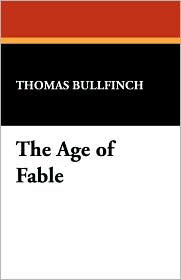‘The Age of Fable’ by Thomas Bullfinch

Read it once, and it's a miscellany of Greek and Roman myths.
Read it twice, and it's an impressive guide to how pervasive an influence those myths were to writers and poets well into the 19th century.
Read it three times or more, and perhaps you'll hear the key turn in Pandora's box — all manner of things will be set loose in your imagination as Thomas Bullfinch sketches stories of men and women turned into monsters; of gods and their infidelities; and of the ultimate quests for those things humanity holds so dear — power and home.
"The Age of Fable" is by no means a recent publication. It first appeared in 1855, the work of a Boston bank clerk with time enough to cross-reference the myths with an astounding selection of literature and art.
He acquaints us with the sun god Apollo through romantic poet George Byron. He shows how the snake-headed Medusa rears itself in the poems of John Milton. Shakespeare flavors the story of the Argonauts who pursued the Golden Fleece.
It's impossible to turn the pages without seeing how the sacred values and taboos of ancient cultures inform modern civilization at almost every level — religious, political and legal.
Everyone who reads has books they return to repeatedly throughout their lifetime — "Bullfinch's Mythology" is one of those for me, partly because I take away a new thought or idea every time I pluck it off the shelf. It contains the bones of concepts told and retold by ancient civilizations, and for those captured by it, the book is a gateway to a host of other works: "The White Goddess" by Robert Graves; "The Hero With a Thousand Faces" by Joseph Campbell; "Man and His Symbols" by Carl Jung; and "The Iliad" and "The Odyssey" by Homer.
Those who've read Bullfinch understand completely why, in "The Odyssey," Homer says: "All men owe honor to the poets; honor and awe, for they are dearest to the Muse who puts upon their lips the ways of life."









